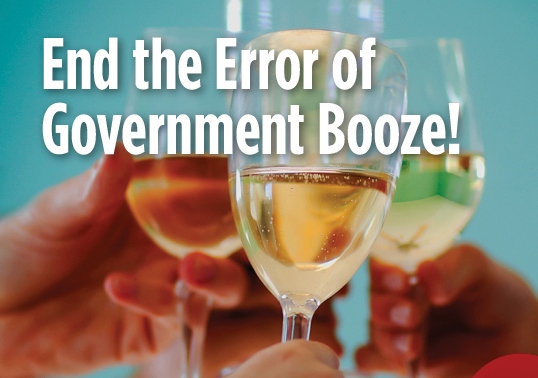Media

The Consequences of Concentrated Power
We aren't the type of people to begrudge anyone a well-deserved raise. But when it's a $9,000 raise for an inessential position running a government booze monopoly…well, that raises some eyebrows.
The Pennsylvania Liquor Control Board (PLCB) recently gave its executive director John Metzger a 6.2 percent raise, bumping up his salary to $154,035 a year.
A PLCB position commanding a six-figure salary might appear to be essential to the functioning of a government agency. But is this position needed? Gov. Ed Rendell created the controversial position just 10 years ago for former state senator Joe Conti. The PLCB’s Chairman at the time, Jonathan Newman, resigned in protest because he thought the position was unnecessary.
Ignoring the controversy of the hiring, did Conti improve the management of PLCB? Not in the slightest, as this list of boondoggles makes abundantly clear. Additionally, Conti used the position to enrich himself at the expense of people stuck dealing with an inefficient yet powerful booze bureaucracy. And he continues to profit off the PLCB’s existence as a lobbyist for the local United Food and Commerical Workers union.
The source of all these problems—arbitrary raises, unwarranted positions, mismanagement, and corruption—is the control the PLCB has over the sale of wine and liquor. The system consolidates power among a handful of people, giving rise to abuses that every Pennsylvanian should find unacceptable.
The liquor monopoly is hanging on by a thread. Last year, the legislature passed a privatization plan for the first time in 80+ years. Unfortunately, Gov. Wolf vetoed it. But this should not dissuade lawmakers from sending it to his desk again.
Only full privatization can end cronyism and offer the choice, convenience and, competitive pricing consumers and entrepreneurs deserve.